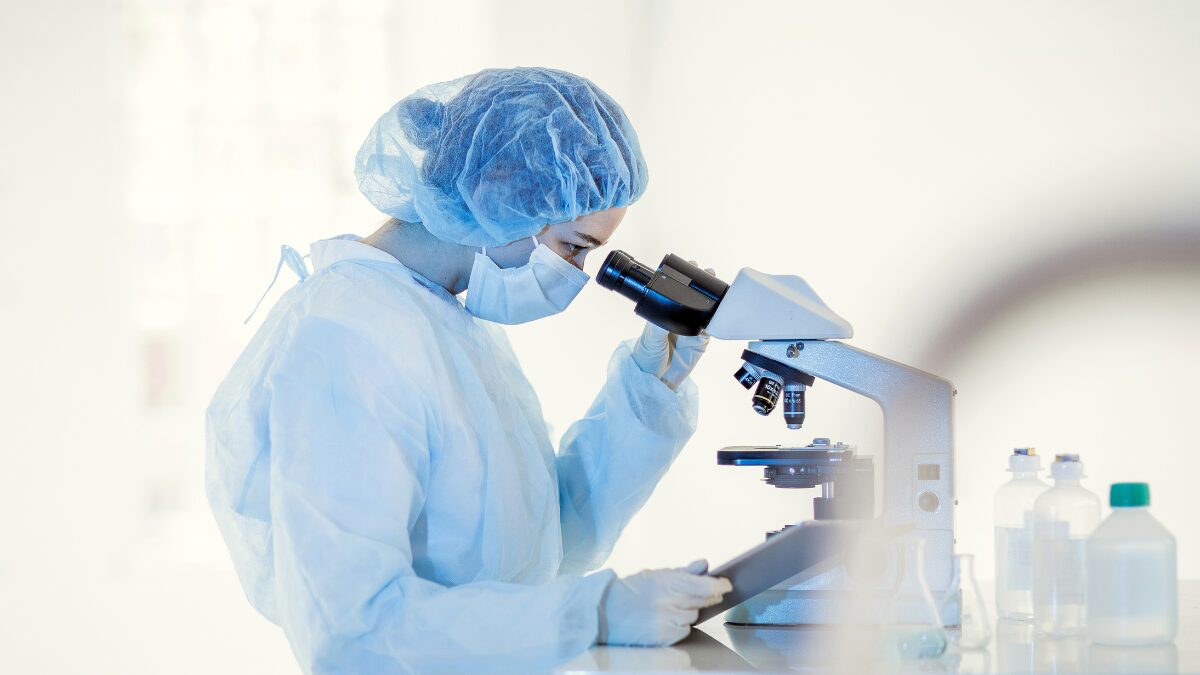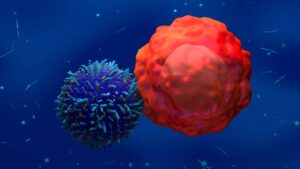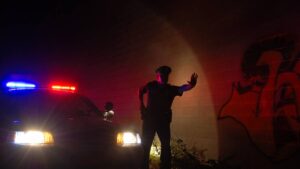Arovella tackles CAR-T’s limitations in cancer treatment with off-the-shelf innovation

Arovella is working to overcome limitations of CAR-T cell therapy for cancer. Pic via Getty Images
- Arovella Therapeutics at forefront of overcoming limitations of CAR-T cell therapy for cancer
- Company uses healthy donor-derived iNKT cells, engineered with CARs to target specific cancer antigens
- Arovella looks to start phase I trial this year for lead product ALA-101
Special Report: Chimeric antigen receptor (CAR-T) cell therapy is a rapidly growing frontier in cancer research, with Australian biotech Arovella Therapeutics at the forefront and working to overcome limitations of this promising treatment.
CAR-T involves reprogramming a patient’s own immune cells to better recognise and destroy cancer with some early success from treating blood cancers like leukaemia and lymphoma.
But like every emerging treatment strategy, CAR-T is not without its challenges, which Arovella Therapeutics (ASX:ALA) is trying to resolve and in turn see the treatment more widely available for tackling blood cancers and also for solid tumours, a far greater challenge.
The company’s proprietary allogeneic (one to many) platform uses healthy donor-derived Natural Killer T (iNKT) cells, engineered with chimeric antigen receptors (CARs) to target specific cancer antigens.
CEO Dr Michael Baker said the approach offered significant advantages over traditional autologous (one to one) CAR-T therapies, including enhanced safety profiles, scalability and the potential for off-the-shelf availability.
“Classic CAR-T therapies where starting material is collected from the patient before ultimately being administered back to them creates a high level of complexity in terms of manufacturing, and makes them very costly,” he said.
“It can cost up to US$500,000 per dose and take three to six weeks to manufacture, which can be problematic when patients have aggressive disease.”
Baker said CAR-iNKT cells were quite unique in that despite also being natural immune cells in the human body, they can freely be given from one human to another, and do not cause Graft-versus-host disease (GvHD), a complication that can happen when transplanted donor immune cells recognise the patient’s tissues as foreign and launch an immune attack.
“When we give T-cells from one person to another they can recognise tissues and organs as foreign in the recipient and start attacking them, which is known as GvHD. That is why the immune cells for CAR-T have to come from the patient,” Baker said.
Baker said instead CAR-iNKT cells could be manufactured using iNKT cells donated from one person, and administered to another because they naturally only target a single, universal antigen that is the same in every human.
“This means when introduced into a new person’s bloodstream, the cells don’t recognise anything as foreign and avoid launching an immune attack on the recipient,” he said.
“That is a very big advantage and unlocks the potential to use them in what we call an off-the-shelf fashion.”
He said it meant the CAR iNKT cells could be stockpiled ready for use when needed in patients, reducing the time of manufacture, getting the therapy to patients faster, which is important as they are often very sick patients.
“Treatments for cancer first involve some type of radiotherapy or chemotherapy which will beat up the immune system so if you need to take out their immune cells to start manufacturing a therapeutic you can see how that would be sub-optimal,” he said.
“So, when compared to a healthy donor to provide CAR-iNKT cells we’re already off to a better start.”
Manufacturing mastery is Arovella’s competitive edge
Arovella’s lead candidate ALA-101 combines iNKT cells with a CAR that targets CD19, a protein commonly found on B-cell blood cancers like lymphoma and leukaemia.
The company has licensed the manufacturing process, which is patent protected, from Imperial College in London.
Its manufacturing partner is leading contract development and manufacturing organisation (CDMO) Cell Therapies, based at the Peter McCallum Cancer Centre in Melbourne.
The CDMO has been manufacturing CAR-T therapies for ~20 years and was the commercial manufacturing partner for the Kymriah product of big pharma Novartis.
Kymriah was the first CAR-T therapy approved by the US Food and Drug Administration (FDA), back in 2017.
“We took the manufacturing process established by Imperial College London, which was at the research stage, and improved upon it for a commercial environment, where we needed to manufacture under good manufacturing practice (GMP) conditions,” he said.
“Beyond the patents, what we’ve gained through manufacturing and scaling up has been a deep well of internal know-how and trade secret.”
Baker said that while CAR-iNKT cell therapies could offer major benefits, reaching the point for Arovella had been a big challenge.
“We’re one of few companies globally capable of producing CAR-iNKT cell therapies in an off-the-shelf- manner,” he said.
“It’s not straight-forward and there is no recipe book for making CAR-iNKT cells.
“The manufacturing process essentially becomes the product, which marks a major shift from traditional therapeutic classes and that is quite valuable for us moving forward.“
In preclinical studies, ALA-101 has shown it can produce a strong population of CAR-iNKT cells that effectively seek out and destroy CD19-positive tumour cells.
Preparations for phase I trials
Arovella is now preparing to move into phase I clinical trials later this year. Baker said manufacturing of the final batches of ALA-101 for the trial should be complete in the next few months.
The company will then file an investigational new drug (IND) application with FDA.
“That encompasses not just our manufacturing data but all of our pre-clinical data that we collect by completing IND-enabling studies,” he said.
“When the application is accepted that is a key catalyst enabling us to start phase I clinical trials.”
Working to target solid tumours
Beyond ALA-101, Arovella is expanding its pipeline to address solid tumours by developing ALA-105, which targets Claudin 18.2, a clinically validated antigen expressed in several solid tumour types.
The company is also exploring the integration of IL-12-TM cytokine technology to further enhance the efficacy of its CAR-iNKT cells.
“The state of play is we’ve seen remarkable outcomes and results using CAR-T cell therapies for blood cancers,” he said.
“What we have observed is there’s been a lower amount for success for classic CAR-T cell therapies in solid tumours and we need to do better.
“At the end of the day nine out of 10 cancer diagnoses will be a solid tumour, and the scientific data suggests that CAR-iNKT cells have good prospects targeting solid tumours”
Listen: Michael Baker chats with Tim Boreham
In a recent episode of Stockhead’s Health Kick Podcast, Tim Boreham speaks with Arovella CEO and managing director Michael Baker about the company’s work in cancer immunotherapy and its innovative iNKT cell therapy platform.
This article was developed in collaboration with Arovella Therapeutics, a Stockhead advertiser at the time of publishing.
This article does not constitute financial product advice. You should consider obtaining independent advice before making any financial decisions.
Related Topics

UNLOCK INSIGHTS
Discover the untold stories of emerging ASX stocks.
Daily news and expert analysis, it's free to subscribe.
By proceeding, you confirm you understand that we handle personal information in accordance with our Privacy Policy.








